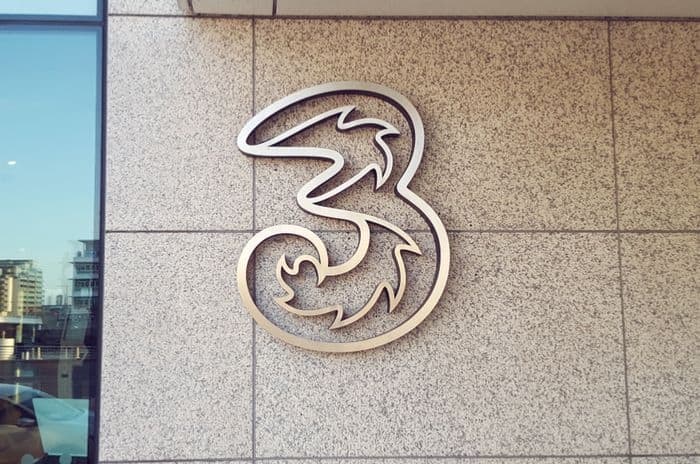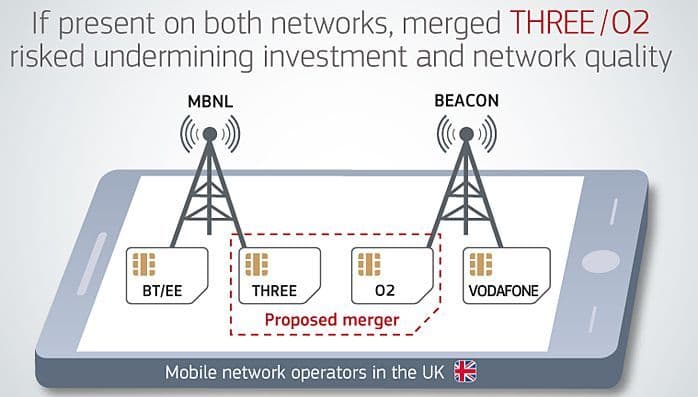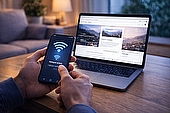Home > Mobile > News > European Commission blocks O2-Three merger
European Commission blocks O2-Three merger
THE European Commission have blocked Three's proposed takeover of O2, despite Three's owners offering numerous concessions.

Competition commissioner Margrethe Vestager seems to have sided with Ofcom and the CMA in saying that the deal would result in reduced choice and higher prices for customers.
There were also concerns that investment would be affected, with both customers and the network sharing arrangement used by the four operators suffering.
CK Hutchison, Three's parent company, say they're "deeply disappointed" by the decision, and that they're considering a legal challenge.
O2 and Telefonica
O2 themselves say it has been, and will remain, business as usual, in a short statement issued in the wake of the decision:
"The O2 business has continued to perform well in the market whilst the Commission process has taken place. Our customers are our priority and we will continue to differentiate, compete fiercely and remain successful, long into the future."
Given that Telefonica seem determined to sell O2, that's good news for customers at least.
The reason they're so keen to get rid of the UK network is that they have some of the highest debts in the European communications industry.
At the end of 2014, the figure stood at €44 billion; had this merger gone ahead, the £10.3 billion they gained would have made what is now a €49.9 billion debt that bit more manageable.
O2's other business
Jan 2015: Exclusive talks begin
Oct 2015: Ofcom cast doubts on plan
April 2016: CMA weigh in against deal
It may be less than stellar news for Sky, however.
The satellite broadcaster and ISP are still planning to launch their own mobile virtual service using O2's network by the end of this year. They came out in favour of the merger at the start of the year.
Weighing heavily on that decision was the fact that they would be "more confident" about their prospects if the owner of the network they're partnering with was truly committed to it.
Telefonica, they said - in something of an understatement - didn't seem interested in keeping hold of O2 for the long term.
Hutchison were certainly committed to getting their hands on O2. They offered various concessions to the Commission in the hope of getting the deal to go through, including offering to freeze prices for five years, and pledging £5 billion of investment.
Network sharing concerns
That wasn't enough for the Commission, however.
The UK, they say, is one of Europe's most advanced when it comes to 4G rollout and take-up - good to hear given that many of us didn't seem that bothered by it at first.
This is partly because there's healthy competition between the providers to improve their coverage and prices for the resulting services, and partly because none of them are on their own when it comes to paying for the rollout of the infrastructure underpinning them.

SOURCE: European Commission
As seen in the diagram above, EE and Three share their networks as Mobile Broadband Network Limited (MBNL). O2 and Vodafone share the Beacon network.
The Competition Commission say they feared that with a foot in both camps, the new operator could keep an eye on both their competitor's network plans - and potentially put a brake on them.
That, say the EC, would weaken both EE and Vodafone - and with them plans to develop and roll out future services, including 5G.
Alternatively, the new mobile giant could have thrown their lot in with one or other of MBNL or Beacon, effectively leaving one network to cope on their own.
But for Hutchison, the network sharing issue is one on which they were unlikely to find a winning solution.
If, for instance, they threw in their lot in with EE on MBNL, Vodafone would be the left out on their own.
In the face of two giant mobile operators, it's not difficult to imagine Vodafone struggling to keep up - with the potential for a further reduction in independent mobile operators from three to two, which would definitely have had the EC slamming the brakes on any deal.
EE do at least have the might of BT behind them now - and they're already using it to boost connectivity in some out of the way locations.
But if they committed to Beacon instead, Three - who are the UK's smallest mobile operator - would lose out in terms of coverage; they're second only to EE both in terms of geographical spread, and combined indoor/outdoor coverage in terms of population.
For sale: UK MNO
So what's next?
Hutchison say that as well as looking into mounting a legal challenge to today's decision, they're focusing on getting another merger passed by the European Commission.
This time they're looking to create the biggest network in Italy by merging the operator Wind with Three Italia.
As for Telefonica, even before today's decision was definite, there was plenty of interest in taking O2 off their hands.
There's been talk of them floating the company, and of it ending up in the hands of a private equity company.
But there's also been renewed interest from a couple of other potential buyers, including the French telecoms company Iliad SA - and in what could be another blow for Sky, Virgin Media's owners, Liberty Global.
There's a hint of irony about this, given that in 2013 O2 made an unsuccessful bid for the opportunity to provide the network on which Virgin Media run their own mobile service, and that in 2014 they again expressed interest in striking up a partnership.
In the meantime, however, O2 customers - and Sky, and presumably O2 themselves - will be hoping that the confidence expressed in the statement above is well placed, and that the network will continue.
That said, at least we can move to a new provider, should it come to it - an option, that as today's decision has shown, isn't always so easy for the mobile operators themselves.
Receive consumer updates that matter in our newsletter

We are independent of all of the products and services we compare.

We order our comparison tables by price or feature and never by referral revenue.

We donate at least 5% of our profits to charity, and we aim to be climate positive.
Latest News

5 February 2026
Vodafone offers 5G 'Speed Boost' extra benefit
19 January 2026
Three named fastest UK mobile network for 2025
9 January 2026
Ofcom moves to let mobile and Wi-Fi share 6GHz airwavesReceive consumer updates that matter in our newsletter


